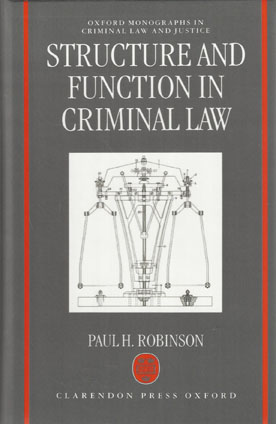
Professor Robinson provides a new critique of the often neglected problem of classification within the criminal law. He presents a discussion of the present conceptual framework of the law, and offers explanations of how and why formal structures do not match the operation of law in practice.
In this scholarly exposition of applied criminal theory, Robinson argues that the current operational structure of the criminal law fails to take account of its different functions. He goes on to suggest new sample codes of criminal conduct and criminal adjudication which mark a real departure from the pragmatic approach which presently dominates code-making.
This rounded exploration of the structure of systems of criminal law is an important work for law teachers and policy makers world-wide.